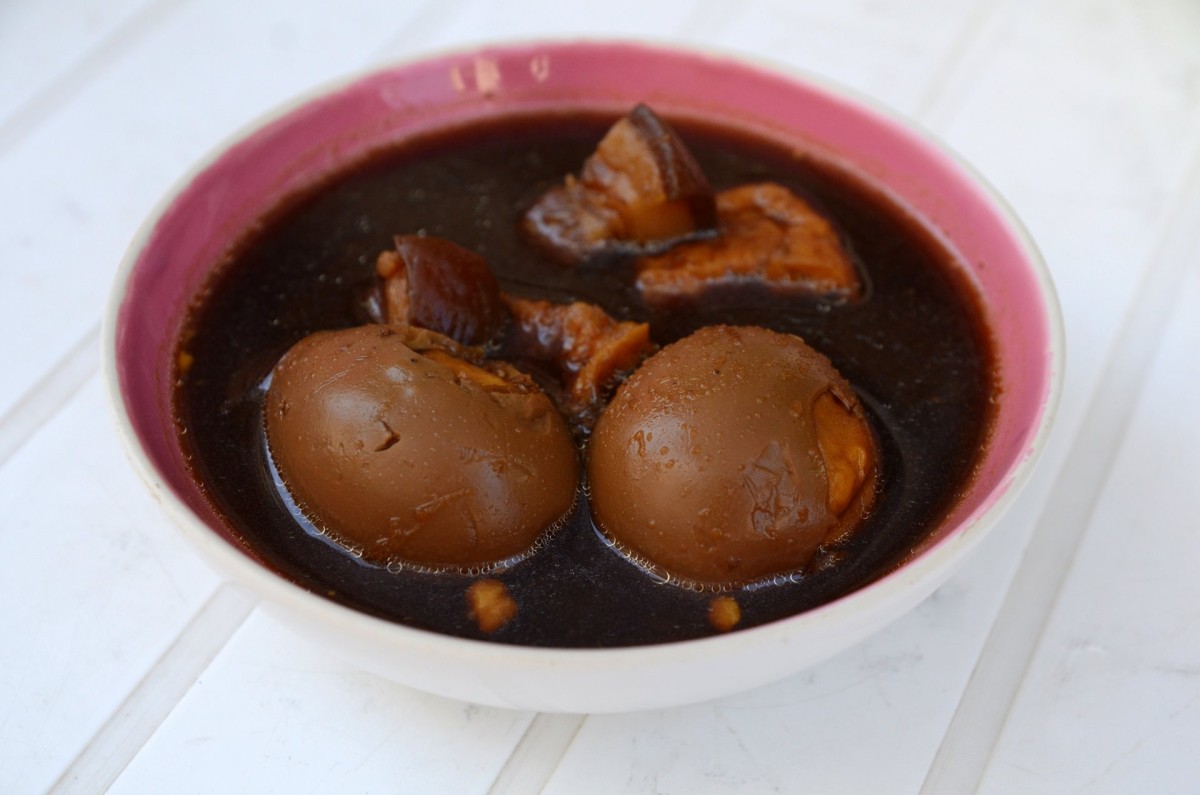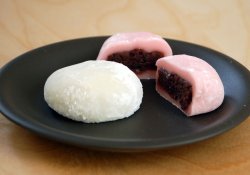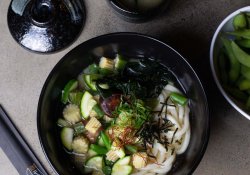Nitamago Ramen Eggs Recipes and curiosities
On this page you will learn the recipe and some information about the Japanese dish Nitamago Ramen Eggs Also known as Zhu Yu Zi.
Table of Content - About - Origin - Information - Ingredients - Preparation - Related
All about Zhu Yu Zi
The nitamago ramen eggs is a traditional Japanese dish that has gained increasing popularity around the world. This dish consists of eggs cooked in ramen bouillon, creating a unique and delicious taste.
The eggs used in the nitamago ramen eggs are known as ajitsuke tamago, which means "marined eggs". They are cooked in a mixture of shoyu, mirin and sugar, which gives a sweet and salty taste to the eggs.
The process of preparing eggs is quite simple, but requires patience and care. First, eggs are boiled for about 6 minutes, until the clear is fully boiled and the yellow is still soft.
After peeling, the eggs are placed in a mixture of shoyu, mirin and sugar, where they remain marinated for at least 4 hours. The longer they stay marinated, the more tasty and dark the eggs will be.
The nitamago ramen eggs is a perfect accompaniment to the main ramen dish.In addition to adding a unique flavor to the bulk, the eggs also bring a soft and creamy texture to the meal.
You can find this dish at various ramen restaurants in Japan and also in other countries that have a great influence from Japanese cuisine.In addition, many people also try to prepare nitamago ramen eggs at home, following recipes and tips found on the internet.
In short, the nitamago ramen eggs is a simple dish, but it has a unique and delicious taste. If you are a fan of Japanese food or are looking for something new to try, it is definitely worth trying this traditional accompaniment of ramen dishes.

Origin and history of Nitamago Ramen Eggs
The nitamago ramen egg is a dish from Japanese cuisine, more precisely from the Fukuoka region. It is a type of cooked and marinated egg that is served with the famous ramen pasta. The origin of the nitamago dates back to the Edo period, where samurai used to eat eggs cooked with soy sauce before their battles. Over time, this recipe has been improved and became an indispensable accompaniment to the ramen, being considered a "perfect egg" for its soft texture and unique taste. Today, the nitamago is one of the most popular ingredients of the ramen and can be found in various restaurants around the world.About the recipe
- Name of the plate: Nitamago Ramen Eggs
- Name of the dish in English: Nitamago ramen eggs
- Name of the plate in Japanese: 煮玉子
- Name of the Romanian dish: Zhu Yu Zi
Information about preparation
- Time to prepare: 18 minutes
- Time of Cooking: 7 minutes
- Difficulty: SIMPLE
- It suits: 6 people
- Occasions:
Ingredients – Ingredients
Check out the necessary and optional ingredients Nitamago Ramen EggsIt makes sense to improvise
- 6 eggs
- 50ml of tsuyu
- 50ml of soy sauce
- 25ml of Mirin
- 1 teaspoon of ginger paste
- Drawing of Pepper
- 50ml of cooking
Watch a video of the recipe:
Recipes - How to Prepare
Now that you know the ingredients to make the recipe Nitamago Ramen Eggs. Follow the instructions below in the preparation mode or step by step.
Preparation mode:
Stir the eggs:
- Fill a pot with enough water to cover the eggs and put it on high fire.
- When the water reaches the boiling point, add the eggs and cook for 7 minutes on medium heat.
Prepare the sauce:
- In another pot, mix Tsuyu, soy sauce, mirin, pepper and ginger.
- Leave it to boil, remove from the fire and let it cool.
Wash the eggs carefully.
- After the cooking time, soak the eggs in a bowl with cold water for 5 minutes.
- Then gently scrub the eggs while they are still submerged in the water.
And the eggs:
- Put the eggs and sauce in a container with a cap.
- Make sure the eggs are completely covered with the sauce and leave to marinate in the refrigerator for 1-2 days.
- Serve with a hot bowl of tonkotsu ramen.
Tips:
- For a complete ramen experience, try making your own chashu and homemade Japanese ramen pasta.
- In addition to being delicious in ramen, these eggs can also be used as a filling for bento snacks, combining perfectly with the onigiri rice balls.



